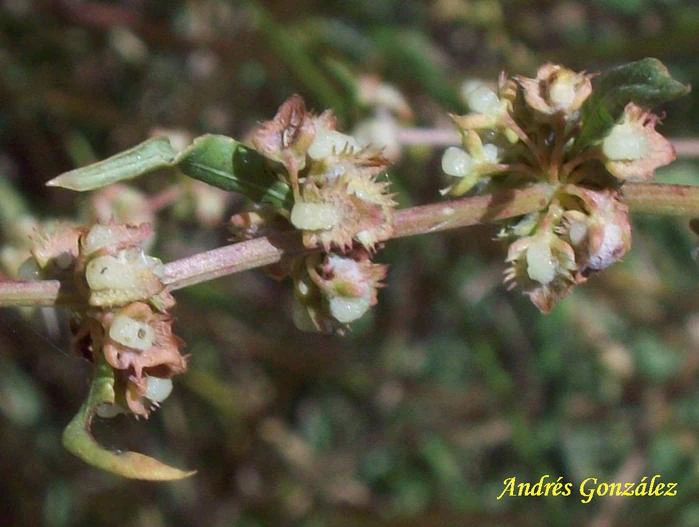Broadleaf Dock
(Rumex obtusifolius subsp. sylvestris)
Broadleaf Dock (Rumex obtusifolius subsp. sylvestris)
/
/

Andrés González
CC BY-SA 4.0
Image By:
Andrés González
Recorded By:
Copyright:
CC BY-SA 4.0
Copyright Notice:
Photo by: Andrés González | License Type: CC BY-SA 4.0 | License URL: https://creativecommons.org/licenses/by-sa/4.0 | Uploader: Nat (WDU) | Publisher: Wikipedia Commons


Estimated Native Range
Climate Requirements for Duluth, Minnesota
| This Plant | Your Site | Plant Suitability for Your Location | ||
|---|---|---|---|---|
| • Precipitation | 17" - 125" | 30" | You should be able to grow this plant with no additional irrigation. | Excellent |
| • High Temp. | 57°F - 85°F | 79°F | Your summer temperatures are normal for this plant. | Excellent |
| • Low Temp. | -8°F - 38°F | -1°F | Your winter temperatures are normal for this plant | Excellent |
This plant should grow very well at your location without additional irrigation.
Summary
Rumex obtusifolius subsp. sylvestris, commonly known as Broadleaf Dock or Bitter Dock, is a perennial herb native to a variety of habitats including meadows, roadsides, and disturbed areas across Europe, Asia, and North Africa. It is often found in fertile, moist soils, particularly in riparian zones, floodplains, and agricultural land. This species rapidly grows to a height of 1.5-4 feet (0.46-1.2 meters) and a width of 1-2 feet (0.3-0.6 meters). Broadleaf Dock has a basal rosette of large, oblong leaves and produces greenish to reddish-brown flowers that are rather inconspicuous, blooming in the summer. The flowers are not particularly showy, but the plant is known for its large, wavy-edged leaves.
Broadleaf Dock is valued for its medicinal properties, as the leaves have been used traditionally to treat various ailments. It is also considered an edible plant, though with a bitter taste. In gardens, it can be used in wildflower meadows or naturalized areas. It prefers full sun to part shade and grows best in medium draining clay or loam soils, with medium water requirements. However, gardeners should be cautious as Rumex obtusifolius subsp. sylvestris can be invasive outside its native range and is considered a weed in many regions. It can also host plant pathogens like fungi and viruses that affect other crops.CC BY-SA 4.0
Broadleaf Dock is valued for its medicinal properties, as the leaves have been used traditionally to treat various ailments. It is also considered an edible plant, though with a bitter taste. In gardens, it can be used in wildflower meadows or naturalized areas. It prefers full sun to part shade and grows best in medium draining clay or loam soils, with medium water requirements. However, gardeners should be cautious as Rumex obtusifolius subsp. sylvestris can be invasive outside its native range and is considered a weed in many regions. It can also host plant pathogens like fungi and viruses that affect other crops.CC BY-SA 4.0
Plant Description
- Plant Type: Herb
- Height: 1.5-4 feet
- Width: 1-2 feet
- Growth Rate: Rapid
- Flower Color: Green
- Flowering Season: Summer
- Leaf Retention: Deciduous
Growth Requirements
- Sun: Full Sun, Part Shade
- Water: Medium
- Drainage: Medium
Common Uses
Edible*Disclaimer: Easyscape's listed plant edibility is for informational use. Always verify the safety and proper identification of any plant before consumption., Erosion Control, Low Maintenance
Natural Habitat
Native to a variety of habitats including meadows, roadsides, disturbed areas, riparian zones, and floodplains across Europe, Asia, and North Africa
Other Names
Common Names: Bitter Dock
Scientific Names: Rumex obtusifolius subsp. sylvestris, Lapathum sylvestre, Rumex gracilis, Rumex hellenicus, Rumex obtusifolius, Rumex obtusifolius, Rumex obtusifolius f. micranthus, Rumex obtusifolius f. microdontus, Rumex obtusifolius f. sylvestris
GBIF Accepted Name: Rumex obtusifolius subsp. sylvestris